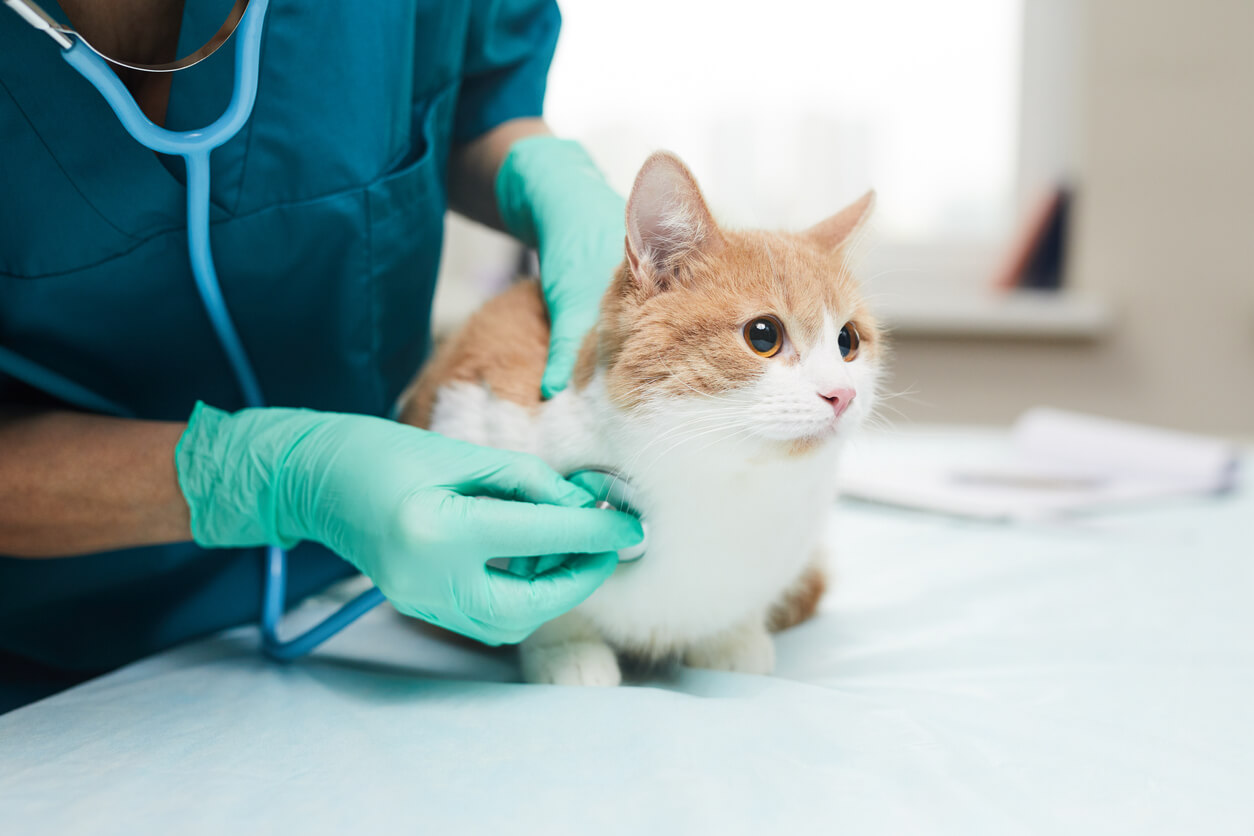Vaccination Guidelines From Your Relied On Vet
Inoculation guidelines offered by your trusted veterinarian play a crucial role in protecting your pet's health and health. Additionally, resolving usual misunderstandings bordering vaccinations can additionally boost family pet owners' confidence in these preventive measures.

Significance of Vaccinations
Vaccinations play a crucial role in guarding animals versus a range of preventable conditions. By boosting the body immune system to recognize and battle specific microorganisms, vaccines substantially reduce the occurrence of infectious diseases that can affect a pet dog's health and wellness and longevity. Not just do vaccinations protect private animals, but they also add to herd immunity, thus decreasing the total prevalence of illness in the family pet population.
Timely inoculations assist to reduce the spread of conditions such as rabies, parvovirus, and distemper, which can have extreme repercussions for both pets and people. Furthermore, vaccinations are commonly a requirement for boarding facilities, grooming services, and pet dog parks, making them necessary for those who wish to mingle their pet dogs.

Core Vaccines for Animals
While the particular inoculation demands of pet dogs can differ based on individual aspects, core vaccinations are globally recommended to safeguard versus one of the most common and significant conditions (Pet Health Checkup). Core vaccinations are those regarded essential for all pets, no matter their way of living or geographical place, as they guard versus very infectious and potentially fatal health problems
For pets, the core injections include those for canine distemper, parvovirus, adenovirus (hepatitis), and rabies. Adenovirus can result in liver condition, while rabies is a zoonotic illness that presents a danger to both pets and people.
In felines, core vaccinations encompass feline panleukopenia, feline calicivirus, feline herpesvirus (rhinotracheitis), and rabies. Feline panleukopenia is a highly transmittable viral disease that influences the immune system and intestines. Calicivirus and herpesvirus are significant contributors to top respiratory infections in cats, while rabies continues to be a vital worry for public health.
Speak with your vet to ensure your pet dogs obtain their core vaccinations on schedule.
Non-Core Vaccines Explained
Non-core vaccines are tailored to resolve details dangers related to a pet's exposure, way of life, and environment to specific illness. Unlike core vaccinations, which are generally advised for all pets, non-core injections are thought about based upon individual circumstances. These vaccinations are specifically crucial for family pets that might run into unique microorganisms because of their geographical place, traveling habits, or tasks.
Instances of non-core vaccines consist of those for Bordetella bronchiseptica, which is linked to kennel coughing, and Lyme disease, created by ticks. Animals that regularly interact with other animals, such as those in boarding facilities, canine parks, or brushing atmospheres, might take advantage of Bordetella inoculation. In a similar way, if you reside in an area where Lyme condition is prevalent, immunizing against this disease can be a prudent choice for outdoor-loving pets.
Other non-core vaccinations might include those for leptospirosis, canine flu, and feline leukemia, depending upon have a peek at these guys the particular danger factors present. It is necessary to have a complete discussion with your vet regarding your family pet's way of life and the prospective requirement for these vaccines, guaranteeing a tailored vaccination strategy that ideal secures your hairy close friend.
Vaccination Schedule Review

As pet dogs grow, it is essential to abide by the advised booster vaccinations. Vet Enterprise. For adult animals, core injections are generally offered each to three years, depending on the certain vaccine and regional regulations. Non-core injections might be recommended based on way of life variables and local disease occurrence, demanding a customized strategy
Regular veterinary examinations are critical for updating vaccination routines. Your veterinarian can offer assistance on one of the most appropriate immunizations for your animal, considering age, health status, and ecological dangers. By staying proactive and informed, animal owners can ensure their hairy friends get prompt and efficient vaccinations, therefore protecting their health and wellness and wellness throughout their lives.
Usual Misconceptions About Injections
Misconceptions concerning pet dog vaccinations can lead to confusion and hesitation among pet dog proprietors regarding the immunization process. One common misconception is that vaccines are unnecessary for indoor animals. While it's real that indoor pet dogs face lower dangers, they are not entirely immune to conditions, why not find out more as microorganisms can be introduced through numerous ways, including human apparel and various other animals.
An additional misconception is that vaccines can create the diseases they intend to avoid. Actually, a lot of injections have inactivated or attenuated virus, which can not trigger illness in healthy and balanced animals. Some family pet owners additionally believe that their pet dogs should not be immunized if they are currently healthy and balanced; nevertheless, vaccinations are a proactive action that aids prevent the beginning of disease.
In addition, several pet dog owners are afraid that injections will certainly lead to long-term wellness difficulties. The advantages of vaccination-- safeguarding animals from potentially serious diseases-- far exceed the dangers.
Verdict
In summary, adherence to inoculation guidelines is vital for guaranteeing the wellness and long life of animals. Dispelling common myths surrounding inoculations additionally reinforces the relevance of notified decision-making in pet dog treatment.
Not only do inoculations secure private animals, yet they also contribute to herd resistance, consequently decreasing the general prevalence of diseases in the animal populace.
Misconceptions concerning pet vaccinations can lead to confusion and hesitation among family pet proprietors regarding the booster shot procedure. While it's real that indoor animals encounter reduced risks, they are not completely immune to conditions, as microorganisms can be presented through numerous ways, consisting of human garments and various other family pets.
Some family pet owners likewise believe that their family pets should not be vaccinated if they are already healthy; nonetheless, vaccinations are an aggressive action that assists protect against the onset of disease.
The advantages of vaccination-- safeguarding family pets from potentially deadly conditions-- far surpass the threats.